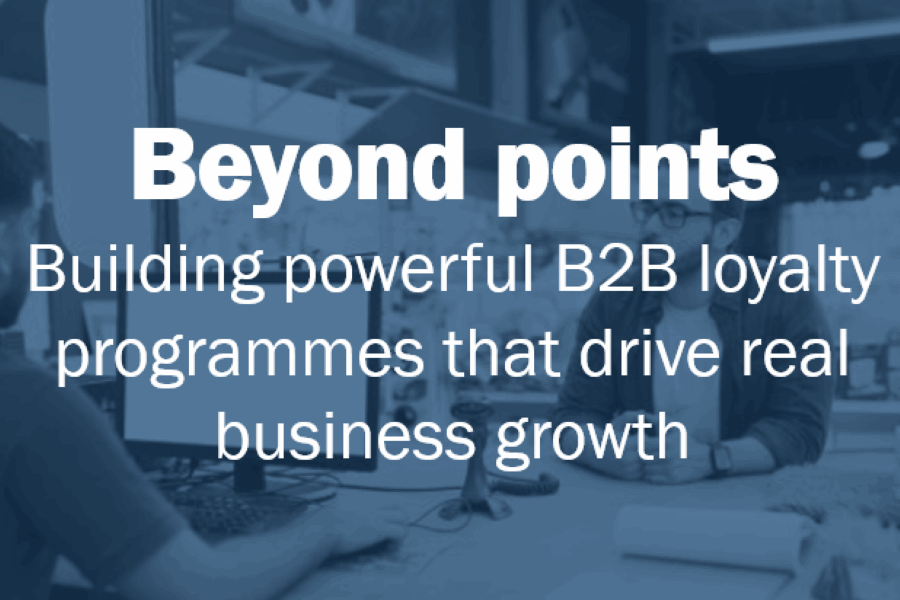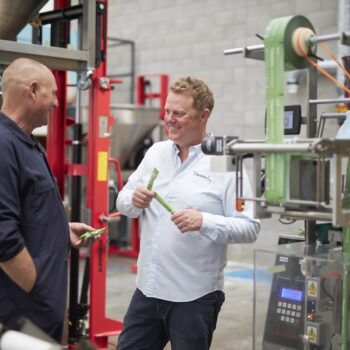Loyalty beyond points
How to build powerful B2B loyalty programmes that drive real business growth.
In today’s economic climate, the cost and challenges of acquiring new B2B customers can be daunting. With New Zealand grappling with persistent inflation, elevated interest rates, and a significant slowdown in many sectors, every business must work harder than ever to retain their existing customers.
For companies supplying the trades – from building materials and plumbing supplies to electrical components and automotive parts – the challenge is particularly acute. Unlike consumer markets where small, frequent purchases create predictable loyalty patterns, trade customers make irregular high-value purchases alongside routine consumables, creating a complex web of business relationships that traditional loyalty programmes simply cannot address.
In these challenging times, trade loyalty programmes aren’t just marketing tactics – they’re essential strategic business tools for customer retention and revenue protection that can mean the difference between thriving and merely surviving.
Why traditional consumer points programmes don’t work for trade
The fundamental differences between consumer and trade purchasing behaviour render traditional points-based loyalty programmes less effective in most B2B environments. Trade customers don’t often make impulse purchases or don’t necessarily respond to gamified experiences.
Consider a contractor who might purchase $50,000 worth of product for a commercial project in January, then spend only $200 on consumables each month for the rest of the year. A traditional points-based system would unlikely motivate them to accumulate rewards for a future discount.
Rewarding for their loyalty is good, but consumer-style points programmes don’t make much sense. Tradies are humans after all, and they appreciate recognition and rewarding like everyone else. But they also need immediate business value such as priority access during shortages, training on new products or techniques, technical support and so on.
Trade relationships are built on trust, reliability, and mutual business benefit rather than pure transactional rewards. A successful loyalty programme must reflect these relationship-based dynamics, offering benefits that directly impact the customer’s business operations and profitability.
Effective B2B loyalty programme should incorporate some or all of the following strategies:
Tiered partnership model
Rather than arbitrary spending thresholds, these systems recognise customers based on their total relationship value, including purchase history, payment reliability, and potential for growth.
Value-added service model
Providing expertise and support services that help them grow their own businesses, such as free technical training, business development workshops, and marketing co-operation opportunities.
Exclusive access and recognition model
Recognising customers as valued partners offering early access to new products, invitation-only industry events, or “preferred contractor” status create emotional connections that transcend price competition.
Incentives and rewards model
Points accumulation has a place in well-rounded B2B loyalty programme, with redemption options outside of ‘cash-back’ for products, services, and events (including major sporting events). B2B partnership arrangements where members could redeem their rewards at other businesses, even extending to family-oriented benefits and not limited to just trade activity.
New Zealand’s economic reality and customer retention imperative
New Zealand’s current economic headwinds have hit trade industries particularly hard. The construction sector has contracted significantly, with building consents down substantially from peak levels. High interest rates have delayed projects and tightened budgets across all trade sectors. In this environment, every customer relationship has become more valuable, and losing even one significant customer to a competitor can seriously impact annual revenues.
The close-knit nature of New Zealand’s trade communities amplifies both opportunities and risks. Word-of-mouth recommendations carry enormous weight, but negative experiences spread just as quickly. Trade loyalty programmes must recognise these dynamics, ensuring that benefits create positive experiences worth talking about.
Economic pressures also mean trade customers will be scrutinising every supplier relationship, looking for partners who understand their challenges and provide genuine support during challenging times. A well-designed B2B loyalty programme signals commitment to long-term partnership rather than transactional relationships.
Implementation best practices for success
Successful trade loyalty programmes start with deep customer understanding rather than generic benefits. Talking to your most valuable customers will provide insights into what a loyalty programme could look like.
Technology integration is crucial but shouldn’t be complex. Your loyalty programme platform must integrate seamlessly with existing customer management systems and provide real-time visibility of benefits and status. Customers should be able to check their tier status, available benefits, and account history through familiar channels.
The strategic imperative
In New Zealand’s current challenging economic climate, businesses simply cannot afford to lose customers to competitors. Trade loyalty programmes represent a proactive investment in customer relationships that pays dividends through improved retention, increased share of wallet, and stronger word-of-mouth recommendations.
The most successful programmes leverage off traditional loyalty concepts, becoming genuine business partnerships that help customers succeed while securing your revenue base. In uncertain economic times, these relationships become your competitive advantage and foundation for sustainable growth.
Now is the time to evaluate your current customer retention strategies. Are you simply competing on price, or are you building the kind of strategic partnerships that weather economic storms and drive long-term mutual success?
Tranxactor New Zealand: [email protected] | +64 9 369 5832 | www.tranxactor.com




